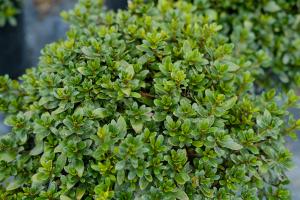Introduction
Tomatoes are a popular garden crop that requires specific soil conditions to thrive. Adding certain nutrients and amendments to the soil can help your tomato plants grow healthy and produce an abundant harvest. In this article, we will discuss what to add to tomato plant soil to ensure your plants receive the essential elements they need to prosper.
Compost
Compost is a vital element to add to tomato plant soil as it enriches the soil with nutrients and beneficial microorganisms. You can make your compost by combining organic matter such as fruit and vegetable scraps, leaves, and grass clippings. Once the compost is broken down, you can add it to your tomato plant soil, increasing its fertility and overall health.
Calcium
Calcium is necessary for tomato plant growth, which is why it's essential to add it to your soil. Calcium deficiency can lead to blossom end rot, a common problem in tomato plants. You can add calcium to soil by using crushed eggshells or limestone. When adding eggshells, grind them up into a fine powder before placing them in the soil.
Nitrogen
Nitrogen is a critical nutrient for plant growth and development. It's essential for leafy vegetation and the creation of chlorophyll, allowing your tomato plants to produce food. You can add nitrogen to soil using organic fertilizers that contain nitrogen, including powdered fish bone meal, blood meal, or worm castings. It's best to add nitrogen to the soil before planting, as nitrogen takes time to break down and become available to plants.
Phosphorus
Phosphorus is necessary for the development of healthy root systems and the production of fruits in tomato plants. Adding phosphorus to your tomato plant soil can be achieved by using bone meal or rock phosphate. It's also essential to have adequate phosphorus levels in the soil before transplanting your tomato plants, as it helps to reduce transplant shock and encourage root development.
Potassium
Potassium is necessary for overall plant health and the development of fruit. It helps to regulate water uptake and the production of sugars in tomato plants. Adding potassium to soil can be achieved by using potash or wood ash. When using wood ash, make sure it is fully cooled before adding it to your soil. It's best to add potassium to the soil during the fruiting period, allowing your tomato plants to produce more robust and healthier fruits.
Epsom Salt
Epsom salt is a natural mineral that can improve tomato plant soil by increasing magnesium levels. Magnesium is essential for the uptake of nutrients and the production of chlorophyll, promoting healthy tomato plant growth. You can add Epsom salt by mixing it in with your soil at planting time or sprinkle a small amount around the base of your plants as they grow. It's best to dilute Epsom salt in water before applying it to your tomatoes, as undiluted salt can damage plant roots.
Conclusion
In conclusion, adding organic matter and essential nutrients to your tomato plant soil is crucial for healthy growth and a bountiful harvest. Remember to use organic materials and choose the appropriate type of amendment for your specific soil needs. By using these tips and tricks, you'll have a thriving tomato garden in no time.

 how many times do yo...
how many times do yo... how many planted tre...
how many planted tre... how many pine trees ...
how many pine trees ... how many pecan trees...
how many pecan trees... how many plants comp...
how many plants comp... how many plants can ...
how many plants can ... how many plants and ...
how many plants and ... how many pepper plan...
how many pepper plan...































